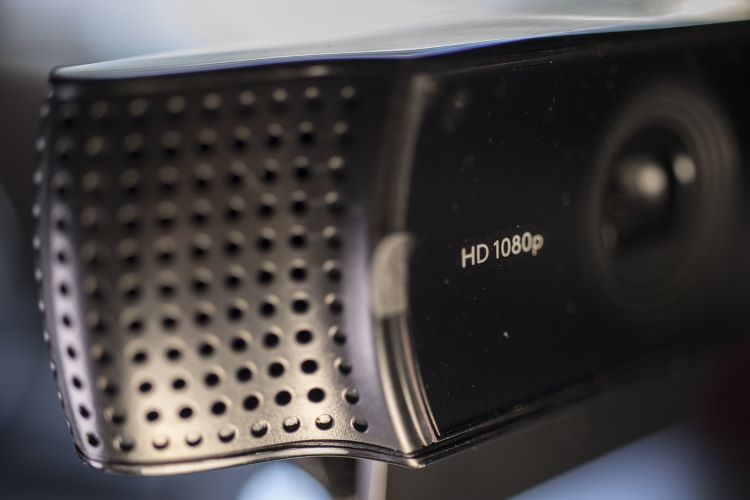Technology seems to be developing at a lightning pace these days, with the new and revolutionary tech from just a few years ago suddenly looking outdated. In the Middle-East, leaders across the nations have been very aggressive in their pursuits of not only getting up to speed with technological advancements, but also driving innovations in the field.
The United Arab Emirates – particularly Dubai – Qatar, and Saudi Arabia have all been very vocal in their pursuit of technological advancements. Now, the foundations are in place to allow for further innovations to be adopted, utilized, and built-upon across the region in the years to come. Technology impacts nearly every facet of everyday life, from work to entertainment, so the continued focus on the industry could reap benefits for the Middle-East across any number of industries.
Here, the focus is on the innovations that are already present or are being developed in the Middle-East, which could prove to be the foundations of the tech-driven future in the region.
The next massive leap of the internet

Just about everyone in the tech industry is raving about the upcoming widespread arrival of the fifth generation of the internet. While 4G internet greatly helped to advance the mobile sector, 5G internet is set to take the capacity of the internet to a completely, almost science-fiction-like new level. This fifth generation can get speeds of up to 20x that of 4G (with close to zero latency). In fact, Dubai introduced the incredible tech in 2019.
According to a new GSMA report, released June 2, 2020, the Middle-East and North African region (MENA) is set to be among the very first in the world to launch 5G networks commercially. The report further relays that the region is expected to house over 50 million connections to 5G networks by the time 2025 comes around, with a 30 percent coverage across MENA’s population.
One of the more futuristic visions of what’s to come under widespread 5G is what’s being dubbed as “smart cities.” Dubai, an active leader in the tech sector of the Middle-East, has already established plans to become a smart city. Smart Dubai 2021 seeks to revolutionize government services, with over 1000 smart services and 100 smart initiatives being launched to achieve the lofty goals. Best of all, for the residents of the emirate, people’s happiness will be the ultimate success indicator of the Smart Dubai 2021 initiative.
Streaming becoming more interactive and engaging

Streaming has become a core feature of entertainment, from watching people play games online to unlocking vast libraries of movies and series through streaming platforms. Services like Netflix offer a convenient and storage-friendly way for users to view a massive range of content, including the likes of the legal drama series, Justice. But streaming is being taken further than just delivering entertainment.
Sites like Twitch and YouTube are strong examples of how the format has practically taken over online entertainment as of late, with the platforms also allowing interaction between the player and the viewer. Mixer, for example, prides itself on ‘interactive livestreaming’, and with so many different platforms out there, the need to innovate is apparent. Through the implementation of innovative technologies, live streaming now also allows people to play casino games in real-time via mobiles or computers in high-quality. By entering one of the many table games in the live casino lobby at Betway, for example, players effectively take a virtual seat at a real table. From there, the game and live croupiers can see the decisions being made by the players, and can realistically react to perform the motions of the game.
While video calls allow for live interactions with each other, and streaming delivers content to people on demand, this combination of live streaming and real-time gaming looks to set the foundations for further developments. Its uses in gaming are already being practiced a great deal, but the same methods could be extrapolated into remote work, connective business meetings, and think tanks, to allow for a more engaging and interactive experience, which would prove to be more productive.
High-quality gaming from any device

Gaming has priced itself out of many developing regions around the world in the past, primarily due to the high cost of consoles and the most popular games. In MENA, gaming is a very popular form of entertainment, but primarily through mobiles and tablets. That said, the Middle-East region does boast many console gamers, with people turning to the co-op console titles on Sony’s PlayStation 4 over the spring.
The gaming industry across MENA is expected to grow a great deal, by 12.1 percent, over the next couple of years. Trends are expected to remain true, with 58 percent of gamers playing via mobile devices, and 20 percent gaming via consoles. Preference for mobiles as gaming devices are mirrored in most jurisdictions, with the future of gaming looking to enhance the capacity of mobiles for use in the industry.
The idea of game streaming was highlighted the market late last year with Google announcing its Stadia platform as a game-changing platform that the established market giants should fear. A gross lack of games, flaccid business model, and unfulfilled promises of its features (Stadia only recently upgraded its streaming to 1440p resolution despite 4K being initially promised), ensured that the potentially revolutionary technology got off on the wrong foot.
Now, with Microsoft’s Project xCloud looking well-placed to live up to expectations, and already proving to be a popular service, video game streaming has much more hope for the near future. Still in its preview stage, which is free to use, Project xCloud offers over 90 games and exclusive titles that can be streamed to phones that run Android 6.0 or greater, with 4.0 or greater Bluetooth. When it fully launches, Project xCloud could make top-tier gaming even more accessible to entertainment seekers around the Middle-East, with the biggest releases being streamed to smartphones.
The presence of these powerful technologies now in the Middle-East and MENA could prove to be the foundations of incredible innovations to come; especially as the region is so gung-ho in its approach to technological advancement.


